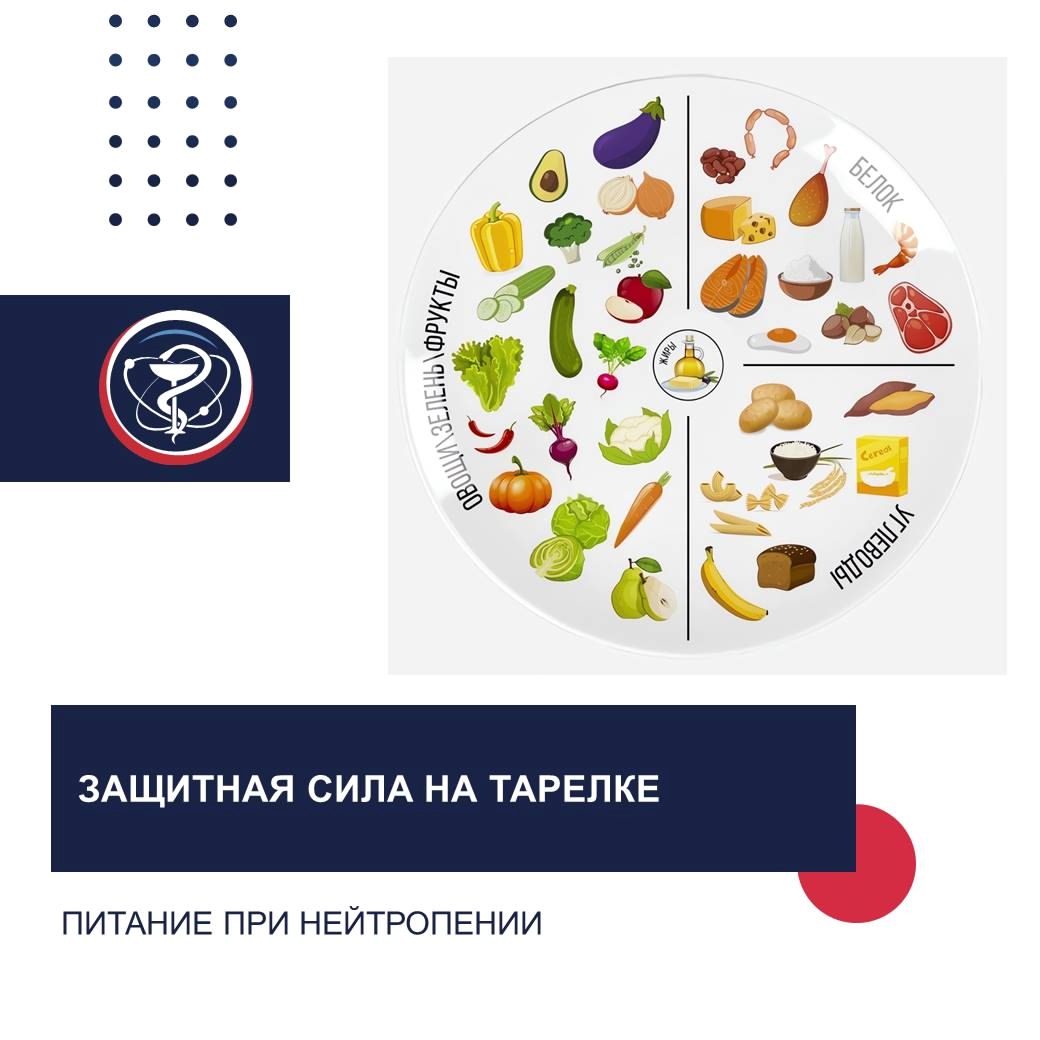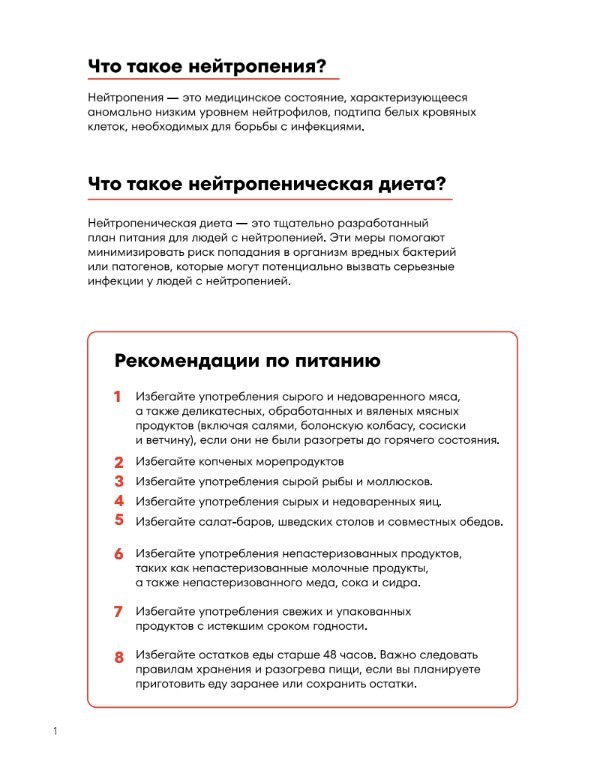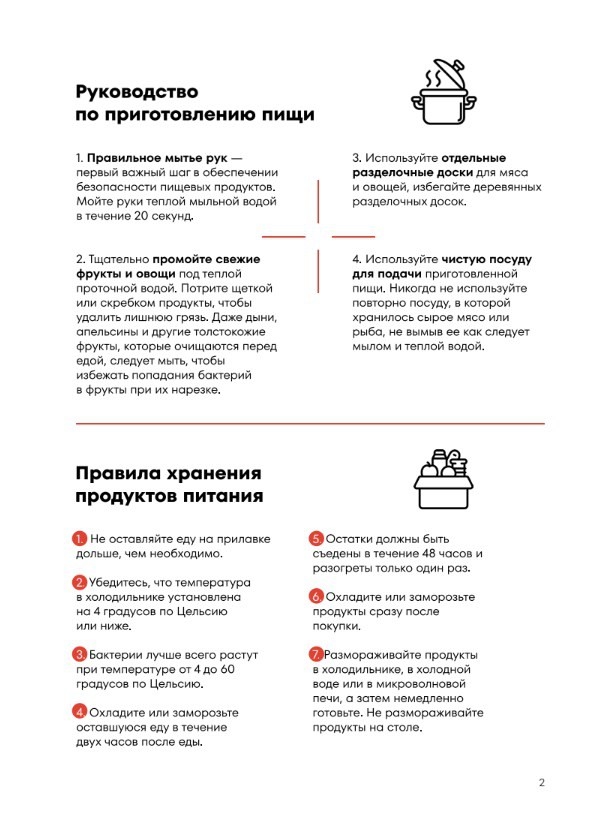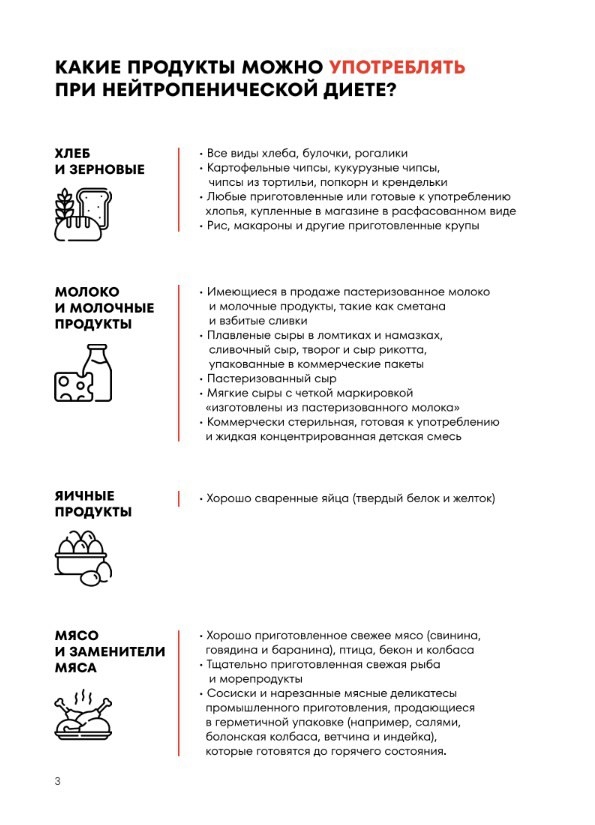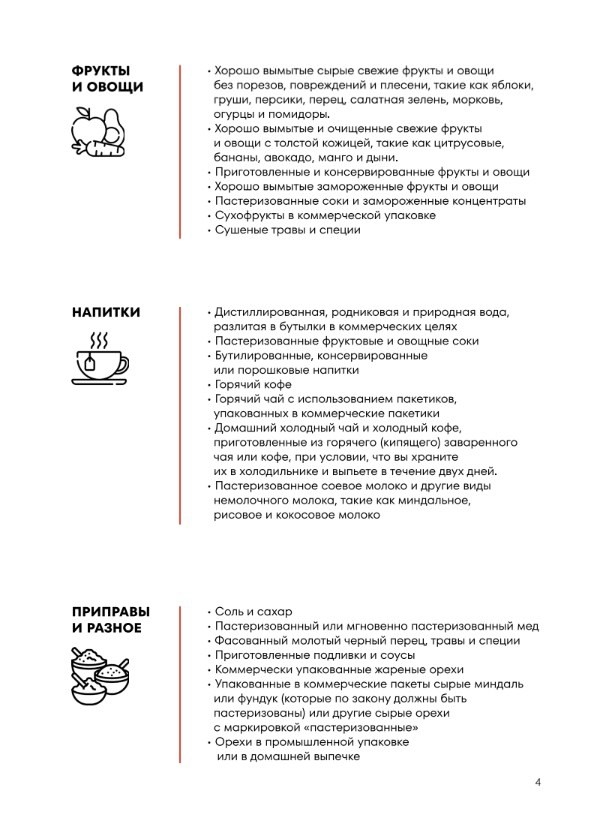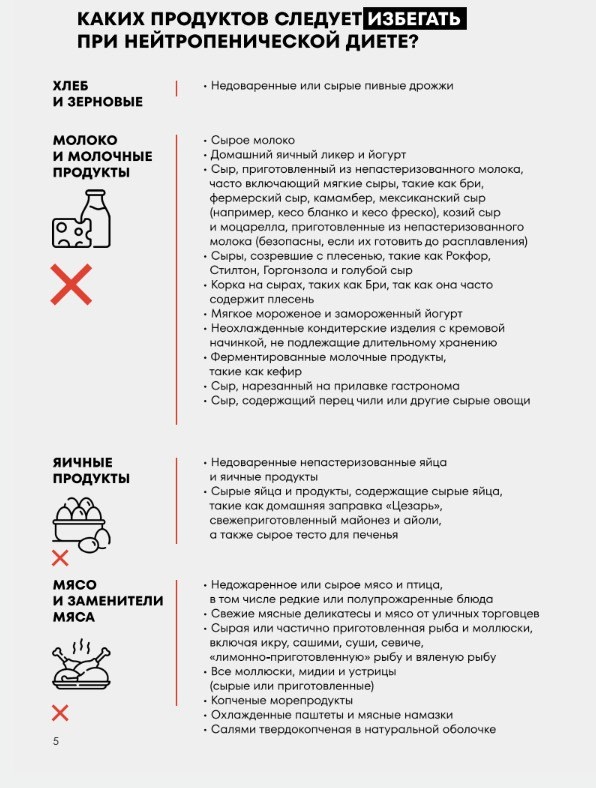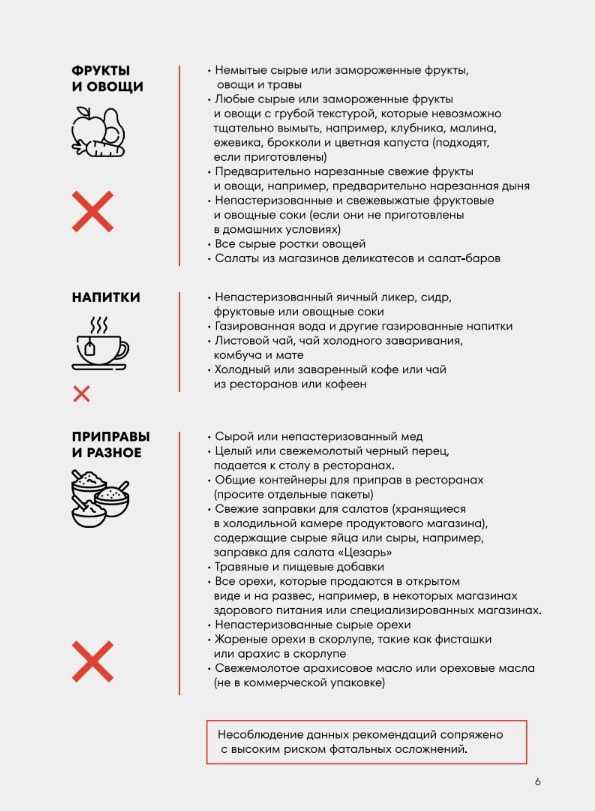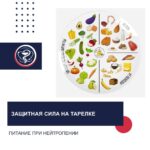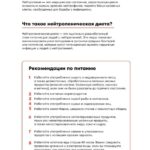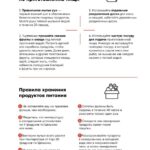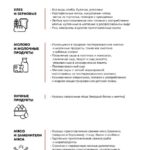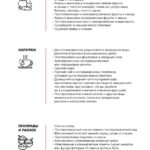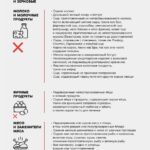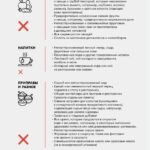PROTECTIVE POWER ON A PLATE: NUTRITION FOR NEUTROPENIA
Neutropenia is a condition when the level of neutrophils responsible for the body’s protective functions drops to alarming levels. Daniil Manaenkov – an oncologist at the Bone Marrow Transplant Department of the A. Tsyb Medical Radiological Research Center – brach of the National Medical Research Radiological Centre Center of the Ministry of Health of the Russian Federation, explains who needs to closely monitor their diet and why.
“In cancer patients, the development of neutropenia is often associated with chemotherapy or bone marrow transplantation. In conditions of a pronounced neutrophil deficiency, the immune system loses the ability to effectively resist infection, which significantly increases the risk of life-threatening complications. That is why during this period, a maximally strict and scientifically based approach to organizing nutrition is necessary,” – Daniil Arturovich emphasizes.
A special diet for neutropenia plays a key role in protecting health. Here are the main goals it pursues:
- Minimizing the risk of infections: Given the weakened immune system, it is important to exclude foods that may contain dangerous microorganisms. Cleanliness and food safety become a priority.
- Nutritional support: A proper diet is not just food, but a source of essential vitamins and minerals that help restore and maintain the immune system.
- Exclusion of irritating foods: Some foods can cause discomfort or aggravate digestive problems. Spicy, fatty and highly processed foods are best left off the table.
- Hydration: Maintaining water balance is vital for overall health and the body’s ability to cope with treatment.
By following doctors’ recommendations, patients with neutropenia can significantly reduce the risk of infections and improve their well-being. To help our patients, we have developed a special guide that will tell you about healthy eating habits and help you integrate them into your daily life.


